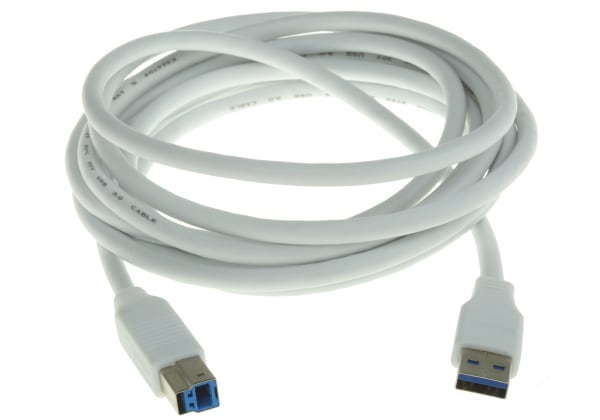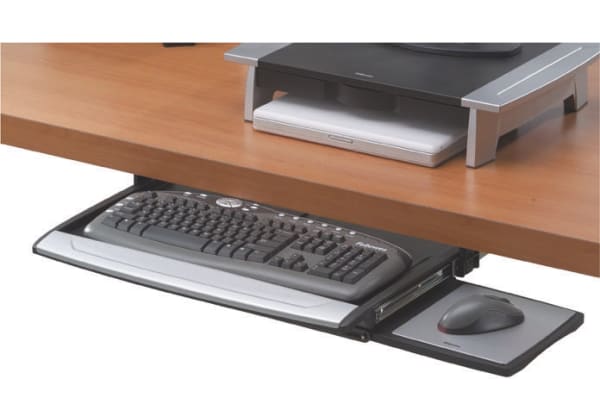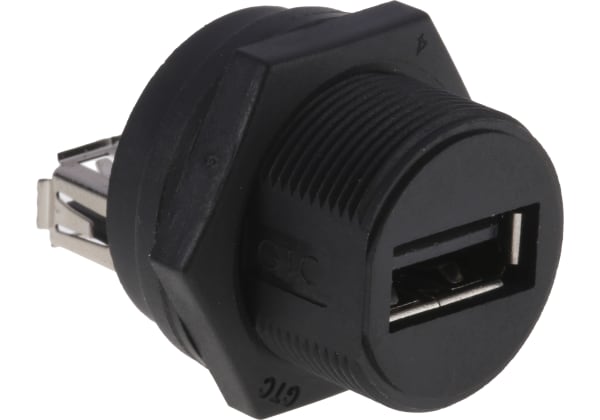- Published 18 Apr 2023
- Last Modified 29 Aug 2023
- 6 min
What is FireWire?
FireWire is a great connection option for fast and large data transfer.

When choosing options for connectivity and data transfer, speed, versatility, and the amount of data you can transfer are important factors. In this guide, we will explain how and where FireWire is used, the different types of FireWire available, and its advantages.
What is FireWire Used for?
With technology being ever-present and an integral part of commercial, industrial and domestic life, it’s important that these devices are connected in a fast and efficient way. This is where FireWire comes in. Like USB or RS232, FireWire is a connection device that connects one computer to another or a computer to an electronic device.
FireWire, also sometimes known as IEEE 1394, performs the same function of transferring data from the computer to the device, or from the device to the computer, depending on user need.
FireWire connections can be used and found on a range of devices. These include laptops, digital cameras, external hard drives and audio devices.
FireWire Speed
As with most tasks in modern life, speed is an important factor. FireWire has very fast rates of data transfer. The latest versions of FireWire can transfer data at an incredible speed of up to 800 Mbps, making it a good choice if speed in transferring data is a primary objective.
FireWire Types
There are two types of FireWire:
- 6-pin FireWire, which is also known as FireWire 400
- 9-pin FireWire, which is also called FireWire 800
There are differences between the two, such as speed transfer, architecture and identifier or reference. Starting with the FireWire 400, its standard reference is IEEE 1394a and it contains a six-pin connection point. It also transfers data at a rate of 400 Mbps.
A FireWire 800, also named IEEE 1394b, connection contains a connection point of 9 pins and transfers data at a rate of 800 Mbps. However, despite their differences, both FireWire types support daisy-chaining connections and support virtually all operating systems.
FireWire Cable

FireWire isn’t just capable of speedy data transfer, it is also capable of retaining those speeds over a substantial length. FireWire cables have different maximum lengths; in the case of the FireWire 400, the maximum cable length that can be used between devices is 4.5 metres. FireWire 800 is even more versatile, as devices can data transfer from a cable length as long as 100 metres.
FireWire Ports

As with all connecting cables, FireWire also has a specific port type for its connection. FireWire has a noticeably different shaped port to its competitors. Visually, the FireWire port is smaller and square-shaped. In the case of a FireWire 400 system, the port is square on one side, coming almost to a point on the opposite side.
When it comes to connectivity, FireWire ports offer a lot of versatility. One FireWire bus can connect as many as 65 different devices, allowing huge variations in application.
FireWire Connectors

Like the cable types and lengths, the connection points for FireWire also come in different options. FireWire connector options are usually identifiable by the number of pins and come in the connection options of four-pin, six-pin and nine-pin. They also come in the options of power or no power.
The six-pin connectors are featured on the FireWire 400, but they also come with the option of DC power, which provides a DC current to the connected device.
The four-pin connectors are the smallest connectors of all three FireWire connectors. They only come in a no-power option and are a common connection point on laptops.
Finally, nine-pin connectors are the most modern and can be used with six- and four-pin connection points. That being said when adapted to be used with four-pin or six-pin connections, their data transfer will be reduced to a maximum of 400 Mbps. These connectors are square-shaped, much like a four-pin connector.
FireWire Card

FireWire technology doesn’t just exist in cables and ports, it also exists in cards. FireWire cards are designed to connect and make a device compatible with a computer, for data transfer purposes, and can easily be installed on a desktop PC.
Some PCs are manufactured to be FireWire compatible as standard, but it’s pretty rare except in custom builds. A compromise solution is to use a FireWire to USB adapter, which might be fine, but might not have the same performance or power options as a dedicated card.
FireWire vs USB
Because FireWire and USB connectivity is similar to the use of cables and ports, a mistake may be made in thinking that USB and FireWire are different versions of the same technology. However, the truth is that they have largely different abilities, with FireWire having a few advantages of USB connection.
The first advantage that FireWire has over USB is its speed. Both are competitive in the speed of data transfer, but in the case of FireWire 800, the speed of data transfer is much greater when compared to USB. Additionally, FireWire also transfers more data than USB, which makes it a more useful connection on devices such as digital cameras.
Secondly, FireWire has more versatility than USB. Because FireWire comes in power options, they don’t always need a computer connection in order to communicate and transfer data. USB does not have a power option, so relies on the power from a laptop or computer device to transfer data. USB is described as host-based whilst FireWire is peer-to-peer based.
The only disadvantage to FireWire is that due to its usability, it is often more expensive than USB. Even so, if you need a connection for fast and large data transfer, FireWire may be a better choice than USB.
FireWire to Thunderbolt
Much like a USB to FireWire cable, you are also able to connect FireWire to an Apple Thunderbolt device using a FireWire adapter. These convert the connection point, allowing you to plug your Thunderbolt device into one end and then your FireWire device at the other end. These devices are readily available and aid easy data transfer between different connection types.


